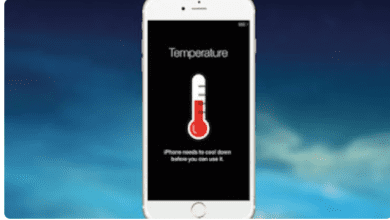How to Cool Down Internal Body Heat

Internal body heat, also known as core body temperature, plays a crucial role in maintaining overall health and well-being.
However, at times, our bodies can become overheated, leading to discomfort and various health issues.
In this blog post, we will explore effective methods to cool down internal body heat and restore balance to your system.
Read on to discover the key strategies and lifestyle changes that can help you beat the heat and promote optimal internal body temperature regulation.
Understanding Internal Body Heat
Internal body heat refers to the core temperature maintained by your body. It plays a crucial role in physiological processes like metabolism, enzyme activity, and cellular function.
The human body maintains an average core temperature of around 98.6°F (37°C), which can fluctuate slightly throughout the day.
However, certain factors can cause an increase in body heat, leading to discomfort and potential health risks.
Causes and Symptoms of Elevated Body Heat
Elevated internal body heat can be caused by various factors, such as intense physical activity, hot weather, hormonal imbalances, infections, certain medications, and underlying medical conditions.
Some common symptoms of elevated body heat include excessive sweating, flushed skin, rapid heartbeat, dizziness, fatigue, and irritability.
Effective Strategies to Cool Down Internal Body Heat
• Hydrate Yourself
Staying hydrated is essential for regulating body temperature. Drink plenty of water throughout the day, especially during hot weather or when engaging in physical activity. Hydration helps your body perspire and maintain an optimal internal temperature.
• Optimize Your Diet
Include foods with cooling properties in your diet, such as watermelon, cucumber, mint, coconut water, and leafy greens. Avoid spicy, fried, and processed foods that can increase internal body heat.
• Wear Breathable Clothing
Opt for lightweight, loose-fitting clothes made of natural fabrics like cotton or linen. These fabrics allow air circulation, promoting cooling and preventing excessive heat retention.
• Practice Relaxation Techniques
Engage in relaxation techniques like deep breathing, meditation, and yoga. These practices help reduce stress levels, which can contribute to increased internal body heat.
• Create a Cool Environment
Keep your living and working spaces well-ventilated. Use fans, air conditioning, or natural ventilation to create a comfortable and cool environment.
• Exercise Moderately
Engage in regular physical activity, but avoid intense workouts in hot weather. Opt for activities like swimming or indoor exercises to keep your body cool while staying active.
• Utilize Natural Cooling Remedies
Apply cool packs or cold compresses to pulse points, such as the wrists, neck, or temples, to help lower your body temperature. You can also take refreshing baths or showers.
• Manage Stress Levels
Stress can raise your internal body temperature. Practice stress management techniques, like mindfulness and relaxation exercises, to keep stress levels in check.
• Get Sufficient Sleep
Lack of sleep can disrupt your body’s natural temperature regulation. Aim for 7-9 hours of quality sleep each night to help your body maintain optimal internal temperature.
FAQs
How does hydration help cool down internal body heat?
Hydration helps regulate body temperature by facilitating perspiration. When you’re well-hydrated, your body can effectively release heat through sweat, which evaporates and cools your skin.
Are certain foods more effective in cooling down body heat?
Yes, some foods have cooling properties that can help lower internal body heat. Water-rich fruits and vegetables like watermelon, cucumber, and lettuce, as well as hydrating beverages like coconut water, can aid in cooling the body.
Can wearing specific fabrics influence internal body temperature?
Wearing breathable fabrics like cotton and linen allows air circulation, which helps cool down the body by allowing heat to escape. Avoid synthetic fabrics that trap heat and moisture.
Is there a link between stress and internal body heat?
Yes, stress can raise internal body heat. When you’re stressed, your body releases stress hormones that can lead to increased core body temperature. Managing stress through relaxation techniques can help regulate body heat.





